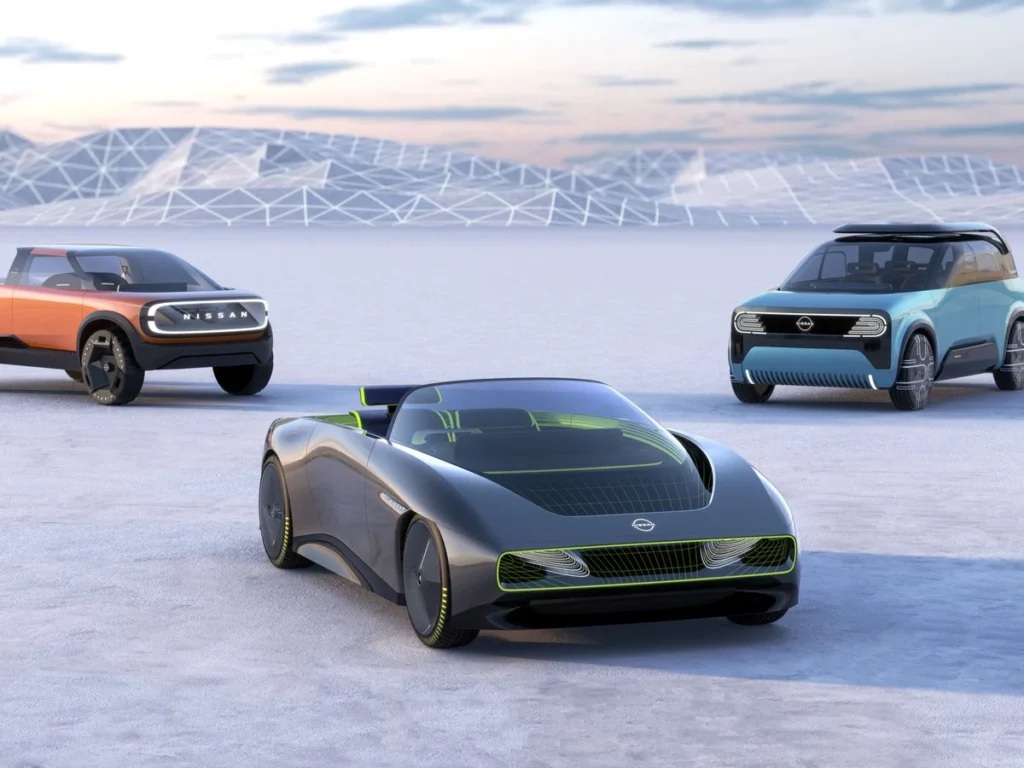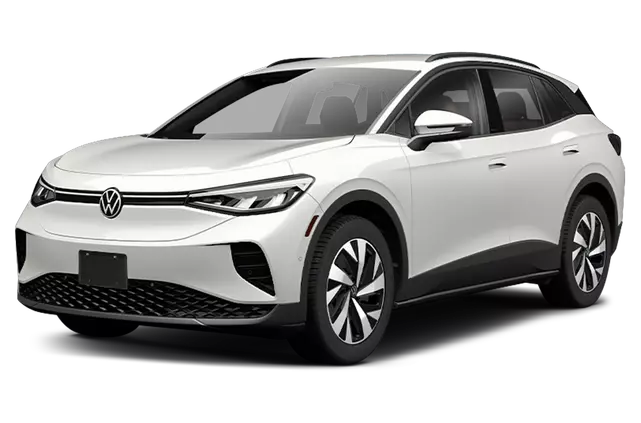In recent years, electric vehicles (EVs) have gained significant popularity as more people become conscious of their environmental impact and seek cleaner transportation alternatives. One automotive manufacturer leading the charge in this domain is Nissan. Known for its commitment to innovation and sustainability, Nissan has unveiled ambitious plans for the future with a strong focus on electric vehicles.
Featured Image courtesy of: hips.hearstapps
Nissan’s Yokohama plant holds significant historical value as not only the automaker’s oldest factory but also Japan’s first mass-production plant.
However, Nissan is not resting on its laurels and has made a groundbreaking decision to transform this iconic facility into a hub for manufacturing solid-state EV batteries.
This move symbolizes the industry-wide transition towards electric cars and showcases Nissan’s commitment to staying at the forefront of automotive innovation.
The Vision: Electrification at the Core
Nissan’s vision is centered around making electrification a core principle of sustainable mobility. As the world grapples with increasing concerns about climate change, automakers are under pressure to reduce greenhouse gas emissions. Nissan understands this urgency and is committed to playing a pivotal role in driving the transition toward zero-emission transportation.
By prioritizing electric vehicles and investing in advanced battery technology, Nissan aims to provide clean and sustainable mobility solutions for the future. With their unwavering focus on electrification, Nissan is poised to reduce carbon emissions and create a greener automotive industry significantly.
Expanding Horizons: Diverse Electric Vehicle Lineup
To meet diverse consumer needs and preferences, one of Nissan’s primary goals is expanding its electric vehicle lineup. Currently known for producing one of the most popular EVs globally – the renowned Nissan Leaf – they are determined to offer even more options that cater to different segments of customers.
Nissan intends to introduce several new models under its EV portfolio across various categories, such as sedans, SUVs, crossovers, and commercial vehicles. By diversifying their offerings, they aim not only to make EVs accessible but also to address specific market demands effectively.
Their research teams are working tirelessly on developing affordable yet technologically advanced options that will appeal to environmentally conscious individuals and those seeking high-performance vehicles without compromising sustainability.
Advancements in Battery Technology
Nissan is investing heavily in battery technology advancements to enhance overall performance and address common concerns associated with electric vehicles, like limited range and long charging times. They are actively researching ways to develop batteries that offer increased energy density while maintaining durability.
One of the significant breakthroughs in this area is solid-state batteries. These batteries promise higher energy density, faster charging capabilities, longer lifespan, and improved safety compared to conventional lithium-ion batteries in most EVs today.
By transitioning its Yokohama plant into a facility for manufacturing solid-state EV batteries, Nissan showcases its commitment to staying at the leading edge of technological advancements.
Furthermore, initiatives are underway at Nissan’s research centers worldwide to improve fast-charging capabilities without compromising battery life or safety standards. These efforts will reduce charging times and contribute significantly towards making EV adoption more convenient than ever before.
Infrastructure Development
Supporting infrastructure plays an integral role in the widespread adoption of electric vehicles globally. Recognizing this, Nissan collaborates with governments, utility companies, and other stakeholders to create a robust charging infrastructure network.
By partnering with various organizations, Nissan aims to install more public charging stations in key locations such as highways, parking lots, and commercial areas. This initiative will help alleviate range anxiety among EV owners and make long-distance travel more feasible.
Moreover, Nissan is exploring innovative solutions like bidirectional charging technology that allows vehicles to receive electricity from the grid and send power back when needed. This concept creates opportunities for vehicle-to-grid (V2G) systems where electric cars can act as mobile energy storage units contributing to grid stability during peak demand periods or emergencies.
Autonomous Driving Integration
Nissan’s plans for the future go beyond electrification alone. The company envisions seamless integration of electric vehicles with autonomous driving technology. By combining these two cutting-edge technologies efficiently and safely on the road, ensuring safety remains a top priority.
Nissan has made significant progress in this area by introducing ProPILOT Assist – an advanced driver-assistance system allowing semi-autonomous driving capabilities. Through continuous research and development efforts, they aim to enhance autonomous features in their electric vehicle lineup.
The integration of EVs with autonomous technology can revolutionize transportation as we know it. It will offer convenience and efficiency and pave the way for safer roads by reducing human errors and accidents caused by distracted driving.
Sustainability Initiatives
Sustainability remains at the core of Nissan’s philosophy regarding its plans for EVs. In addition to reducing emissions through electrification, Nissan is also committed to sustainable manufacturing processes. They are actively exploring ways to minimize environmental impact throughout the entire lifecycle of their vehicles – from production to recycling.
Nissan follows a comprehensive approach called “Blue Citizenship,” which encompasses various initiatives such as reducing CO2 emissions from manufacturing plants, utilizing renewable energy sources, promoting waste reduction and recycling programs, and promoting diversity and inclusion within their workforce.
Moreover, Nissan also promotes renewable energy solutions alongside their electric vehicle offerings. Collaborating with solar power providers and energy storage companies enables them to reduce their carbon footprint and provide customers access to clean energy options at home or on the go.
Nissan Ambition 2030
Nissan is on a mission to revolutionize the automotive industry with its ambitious plan, Ambition 2030. This comprehensive strategy positions Nissan as a leader in developing electric and autonomous vehicles, connected car technology, renewable energy sources, and improved battery technology. The goal? To make electric vehicles accessible to all.
Within the next two years alone, Nissan plans to introduce an impressive lineup of 12 all-electric cars. But their plans don’t stop there; they aim to expand their EV offerings further over the next decade. Not only is Nissan investing heavily in autonomous driving technology, but they also envision fully autonomous cars available for public roads within a few short years.
Additionally, Nissan has committed to reducing carbon dioxide emissions by an astounding 90% by 2050 – making them leaders in environmental responsibility.
With aggressive plans for electric and autonomous vehicles and a strong focus on sustainable initiatives, Nissan is positioning itself as the global leader in automotive technology.
Their Ambition 2030 plan is a crucial first step towards achieving this vision. They are dedicated to advancing battery technology, promoting renewable energy sources, and building more accessible and sustainable modes of transportation.
The Takeaway
Nissan is leading the charge in the electric vehicle (EV) revolution. The Japanese automaker is investing heavily in new technologies to bring a full lineup of zero-emission EVs to market by the early 2030s. This lineup will include a broad range of passenger cars, commercial vehicles, and SUVs.
Nissan is investing in new technologies, such as solid-state batteries, to increase their EVs’ range, power, and durability. They are also developing advanced autonomous driving technology, including their ProPilot system, to make driving more efficient and safer.
To accelerate the development of EVs, Nissan is also collaborating with other automakers to share resources and technology. This company is also focused on creating a more sustainable future. They are investing in sustainable energy sources, such as solar energy, to power their factories to achieve this goal.
The takeaway is clear: Nissan is focused on developing a full lineup of efficient, powerful, and safe EVs. They are well on their way to achieving this goal by investing in new battery technologies, autonomous driving technology, and renewable energy sources.


